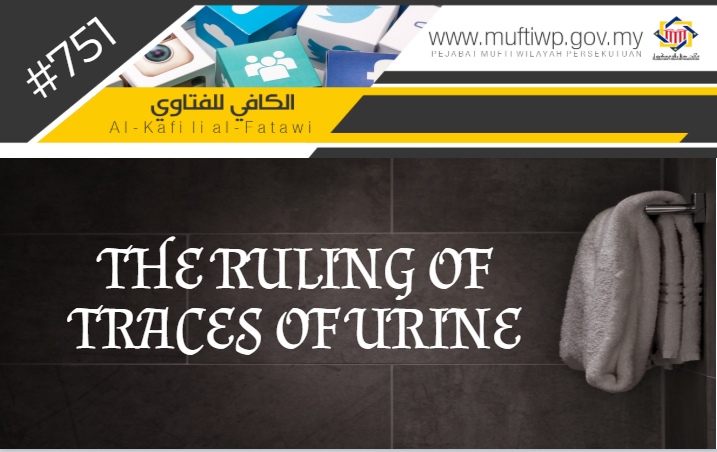Question:
Is a prayer valid, if there are traces of urine on his trousers?
Answer:
Alhamdulillah, praise and thanks to Allah for the countless blessings He has blessed us all with. Blessings and salutations to the Prophet Muhammad PBUH, his wives, his family, companions and all those that follow his teachings to the day of judgement.
Originally, all urine, whether it is from humans or animals is considered as najis (impure) according to a hadith from Abu Hurairah RA, the Prophet PBUH said:
وَهَرِيقُوا عَلَى بَوْلِهِ سَجْلاً مِنْ مَاءٍ
“And pour a bucket or a tumbler (full) of water over the place where he (a Bedouin) has passed urine.”
Sahih al-Bukhari (220)
Hence, if any urine is on the clothing, body and place of prayer, the prayer is invalid for one of the valid conditions of prayer is free from najis. However, the prayer is valid if only traces of it is present, that one could not see it with his eyes. This is as stated by the author of al-Fiqh al-Manhaji:
“Islam is a religion that emphasizes cleanliness wherever one may be. Protecting oneself from najis and being clean and free from najis is one of the valid conditions of prayer, whether it is on the clothes, body or place of prayer. Indeed, it is also a religion that brings ease and not difficulty. Hence it is forgiven if it is extremely difficult to remove it, or from getting into contact with najis. This is to bring ease and remove difficulty from people. For example, traces of urine that cannot be seen by one’s eyes that is on one’s clothing or body, whether it is najis mughallazah, mukhaffafah or mutawisitah is forgiven.” (Al-Fiqh al-Manhaji ‘ala Mazhab al-Syafi’i: 1/43)
As a conclusion, in Islam we are commanded to be in a clean and pure state before we pray. However, it does not mean that someone has to do a thorough inspection in order to ensure that he is free from najis that it becomes a burden in worship. Thus, in situations where it is beyond our abilities, the syarak forgives it.
Wallahua’lam.


